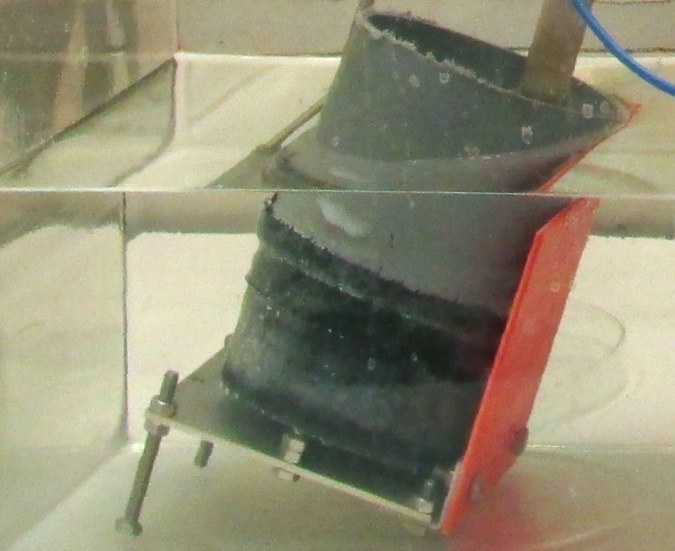Traditional wet-chemical processes are executed in the chemistry laboratory within research or third-party projects. Additionally, samples are prepared for subsequent equipment-based measurements and preliminary investigation. The laboratory operates besides photometer and automatic titration units several other pieces of equipment.
Rapid chloride permeability test (RCPT)
This method accelerates the migration of chloride ions into a sample by applying an electric current externally. The procedure permits the evaluation of the penetraton resistance against chloride of concrete made with different types of binders. This is an important information for reinforced concrete structures close to streets where deicing salt is used.

Figure: RCPT-cell
Thermographical detection of dissolvers
The ingress of dissolvers into constructions materials represents a serious thread for health, environment and fire safety. While slowly evaporating liquids can be detected rather easily visually on the split surface of a sample tested, this is not possible for rapidly evaporating liquids. The latter leave for a certain time span (up to 15 minutes) a “cold trace” caused by the evaporation which can be visualized and subsequently measured by using a thermographic camera.
Figure: Thermographic evaluation of a concrete sample, which was penetrated by hexane up to a depth of 7 cm
